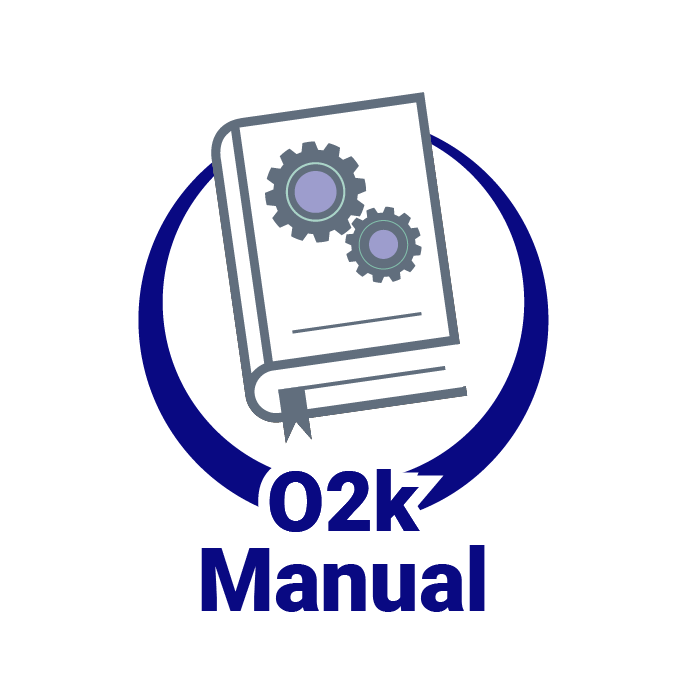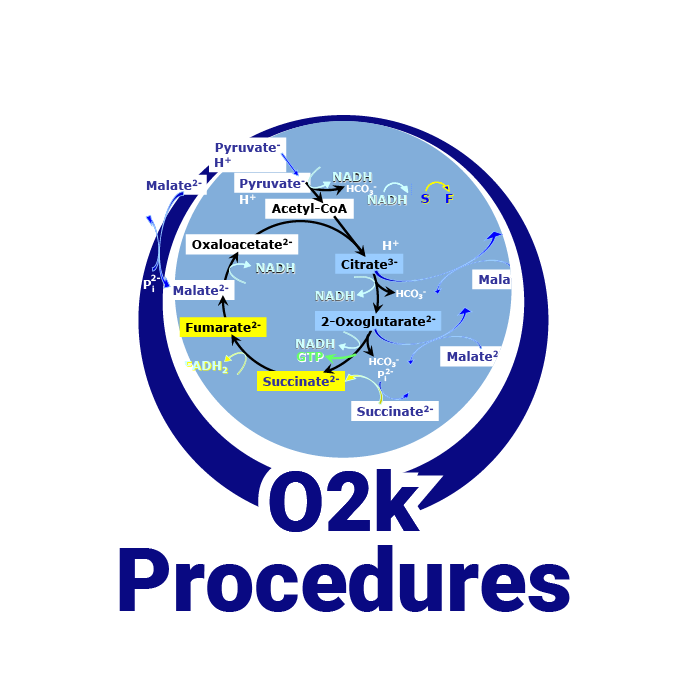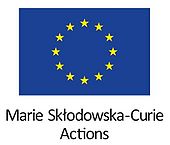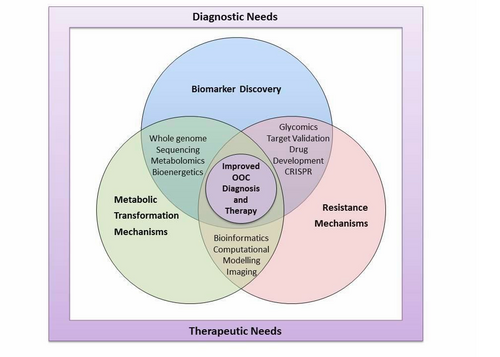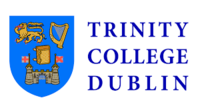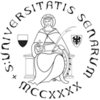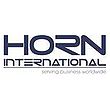From Bioblast
TRACT
TRACT - Training in Cancer Mechanisms and Therapeutics
TRACT: Call H2020-MSCA-ITN-2016
- Marie Skłodowska-Curie Innovative Training Networks, Grant Agreement No. 721906
- Duration: 48 months
- Start: 2016-10-01
- Web: TRACT Website and Twitter: TRACT_ITN
About TRACT
- TRACT supports eleven PhD fellows to complete research projects in the three critical areas: biomarker discovery, molecular resistance mechanisms and metabolic transformation mechanisms. This will allow for the discovery of novel insights into the molecular and cellular basis of oral and oesophageal cancer and generate new diagnostic tools and therapeutics that will improve patient response and survival.
Aims
- In 2012, 8.2 million people worldwide died of cancer, of which 5.3% or over half a million deaths were accounted for by oral and oesophageal cancer (OOC)
- The European community requires early stage researchers (ESRs) trained in next-generation technologies for improved detection and treatment of oral and oesophageal cancers. The number of oral cancers diagnosed in the EU has increased by over 75% in the last 30 years, with long-term survival rates of only 50%. This is typically due to the late diagnosis of the disease and resistance to current therapies. Through the collaborative expertise of clinicians, biochemists, immunologists, and chemists TRACT will enable ESRs to discover novel insights into the molecular and cellular basis of these cancers and generate new diagnostic tools and therapeutics that improve patient response and survival. Each Institution brings unique but complementary expertise in cancer metabolism, metabolomics, high-resolution imaging, biomarker identification, computational modelling, medicinal chemistry, target validation, drug development and translational medicine. Industrial placements in five European countries will ensure ESRs receive specialised training in the development of next-generation technologies in such areas as whole genome sequencing, CRISPR technology, drug screening, exosome isolation and analysis, cancer imaging, metabolism and metabolite analysis in addition to the unique employment experience of working in the private sector. Courses in commercialisation, project management and presentation skills will ensure ESRs will have the ability to present their results to the entire cross-section of the European community, through public engagement.
Objectives
- TRACT provides ESRs with exposure to a collaborative network of European academic and industrial experts working in the complementary domains of cancer metabolism, metabolomics, high-resolution imaging, bioinformatics, biomarker identification, computational modelling, medicinal chemistry, target validation, drug development, nanotechnology and translational medicine. Although there are many researchers working on OOC in the relevant domains listed above, there is a lack of integration between domains - through a programme of integrative training and research, TRACT will bring together relevant domains to deliver better diagnostics and therapeutics for OOC with the overall aim of improving patient response and survival.
- TRACT delivers a cohort of internationally mobile cancer researchers with interdisciplinary skills who will have enhanced career prospects and be in a position to have an impact on the European and global research stage by providing new technologies that can drive entrepreneurship into the European economy and improved diagnostics and treatment options for cancer patients in Europe and beyond.
- The overall aim of the research programme is to integrate basic and applied research in three related themes in order to deliver new diagnostic & prognostic tools and therapeutic approaches for patients with OOC.
- During the project, TRACT ESRs undertake novel research to:
- 1) Determine novel biomarkers at the protein, glycan and molecular level to enable early detection of OOC and to predict patient response to therapy.
- 2) Uncover the molecular basis of drug resistance in OOC leading to the identification of new drug targets and the development of novel cancer therapeutics.
- 3) Enhance knowledge of metabolic transformation in OOC leading to the identification of novel targets for therapeutic intervention.
Coordinator
- TRACT project manager: Catherine McPartlin - Trinity College Dublin - IE
- TRACT project coordinator: Dr Daniela Zisterer - Trinity College Dublin - IE
Network
Project partners
Further partner organisations
PhD Fellows and Supervisors
- Total applications received for TRACT PhD Positions: 150
- Countries represented: 44
- Application profiles: 34% were EU, 4% are candidate EU countries and 62% are non-EU applicants.
- Gender balance: 59% women, 41 % men.
- 11 appointed PhD students started in March 2017.
| ESR | Project title | ESR name | Host institution | Supervisor(s) | Workpackage |
|---|---|---|---|---|---|
| 1 | Inflammatory response elements and glycan profiles as salivary biomarkers for the early diagnosis of OSCC | Valentina Dikova | UVEG (Valencia, Spain) | Prof. Jose Bagan |
Biomarker Discovery (WP2) |
| 2 | Identification of novel molecular biomarkers predictive of benefit to neo-adjuvant chemotherapy in OAC | Eilis Sutton | QUB (Belfast, United Kingdom) | Dr. Richard Turkington & Prof. Richard Kennedy | Biomarker Discovery (WP2) |
| 3 | Modulation of salivary inflammatory markers in patients undergoing radiotherapy for OSCC | Sara Principe | UVEG (Valencia, Spain) | Prof. Jose Bagan | Biomarker Discovery (WP2) |
| 4 | A pathways-based approach to identify determinants of drug resistance in OAC | Niamh McCabe | QUB (Belfast, United Kingdom) | Dr. Richard Turkington & Prof. Richard Kennedy | Resistance Mechanisms (WP3) |
| 5 | Inflammatory caspases as biomarkers for OAC? Determining the role of inflammatory caspases in OAC development and resistance | Ewelina Flis | TCD (Dublin, Ireland) | Prof. Emma Creagh & Dr. James Murray | Resistance Mechanisms (WP3) |
| 6 | Mcl-1 inhibitors for the treatment of OSCC | Prashant Saraswati | UNISI (Siena, Italy) | Prof. Giuseppe Campiani & Stefania Butini | Resistance Mechanisms (WP3) |
| 7 | HAMLET derivatives as a pre-operative therapy in OAC | Magda Ghanim | TCD (Dublin, Ireland) | Prof. Ken Hun Mok & Dr. Vincent Kelly | Resistance Mechanisms (WP3) |
| 8 | Development of novel autophagy modulators to improve sensitivity of OSCC to chemotherapy | Tuhina Kahn | UNISI (Siena, Italy) | Prof. Giuseppe Campiani & Stefania Butini | Resistance Mechanisms (WP3) |
| 9 | Pre-clinical evaluation of targeting autophagy for the treatment of OSCC | Stefania Magnano | TCD (Dublin, Ireland) | Prof. Daniela Zisterer & Dr. Jeff O’Sullivan | Resistance Mechanisms (WP3) |
| 10 | Metabolic profiles in normal, dysplastic and cancerous oral cells | Enis Garipi | Oroboros Instruments (Innsbruck, Austria) | Prof. Erich Gnaiger | Metabolic Transformation (WP4) |
| 11 | Mitochondrial function linked to metabolic differences in normal, dysplastic and cancerous oral cells | Marilena Karavyraki | TCD (Dublin, Ireland) | Prof. Richard Porter | Metabolic Transformation (WP4) |
Oroboros involvement
- WP4: Metabolic transformation
- High-resolution respirometry to assay real time bioenergetics and metabolism in oral cancer cells
- Metabolic profiles of normal, dysplastic and cancerous oral cells
- Comparison of oxygen consumption and extracellular proton flux, as metrics of metabolic flux in different cell types under normoxic and hypoxic conditions; correlate with chemotherapy sensitivity
- Identify differential novel drug targets in the cancer cells
- TRACT examines metabolic transformation mechanisms in OOC with the aim of identifying new drug targets for future therapeutic development. Metabolic transformation is a universal property of tumour formation and is a rich source of targets for development of therapeutic interventions. ESR 10 (Oroboros recruit; TCD secondment) will further characterise the bioenergetic and metabolic differences in normal, dysplastic and cancerous oral cancer cells using the Oroboros O2k-MultiSensor system. This approach will identify differential novel drug targets and means to enhance the chemotherapeutic sensitivity of cancer cells. Factors that control mitochondrial dynamics in cancer cells have also emerged as possible therapeutic targets.
- The dynamic structure of the mitochondria in mammalian cells is defined by the opposing forces of fission and fusion, but the regulation of these mitochondrial processes is poorly understood. This is an emerging area in cancer research where cutting-edge imaging technologies are merging with molecular and cellular biology techniques. Pilot studies performed by Porter in TCD have identified a key molecule involved in controlling mitochondrial abundance (namely SIRT3) as a determinant of drug resistance in some solid cancers. ESR 11 (TCD recruit; Oroboros secondment) will establish the relationship between mitochondrial abundance, morphology, functional proteins involved in mitochondrial dynamics and metabolic differences in normal, dysplastic and oral cancer cells. This new knowledge will lead to the identification of novel therapeutic targets.
- Oroboros project manager: Mag. Verena Laner
- TRACT PhD student (ESR10) at Oroboros Instruments / Medical University Innsbruck: Enis Garipi, MD - Metabolic profiles in normal, dysplastic and cancerous oral cells
- Planned secondments: TCD (duration: 2x3 months, supervisor: Prof. Richard Porter) - measure metabolic flux through (a) glycolysis, (b) pentose phosphate pathway and (c) glutaminolysis using 2H/13C NMR.
- Shao-Chiang Chang worked on this project successfully from 2017-Oct-01 to 2018-Jun-05.
- Anja Bufe was selected as a PhD fellow and started her PhD project on 2017-03-01 with Oroboros Instruments at the Medical University of Innsbruck. Her appointmant ended prematurely on 2017-06-30.
TRACT Events
| When | Where | |
|---|---|---|
| MiPNet22.03 IOC119 Innsbruck AT | 2017-02-27 | Innsbruck AT, 2017 Feb 28-Mar 03. MitoFit Coaching Days - Basic IOC119. |
| TRACT Kick-off meeting Dublin IE | 2017-03-27 | Dublin IE, 2017 Mar 27. TRACT Kick-off meeting. |
| MiPNet22.01 IOC122 Schroecken AT | 2017-06-26 | Schroecken AT, 2017 Jun 26-Jul 01 Oroboros O2k-Workshop on high-resolution respirometry (HRR), IOC122. |
| MiPschool Obergurgl 2017 | 2017-07-23 | Obergurgl AT, 2017 Jul 23-30. 10th MiPschool 2017 MitoEAGLE and MitoEAGLE Workshop WG1-4. |
| MiPNet22.07 IOC124 Schroecken AT | 2017-10-03 | Schroecken AT, 2017 Oct 03-08 Oroboros O2k-Workshop on high-resolution respirometry (HRR), IOC124. |
| MiPNet23.01 IOC126 Innsbruck AT | 2018-01-24 | Innsbruck AT, 2018 Jan 24-26. Oroboros advanced O2k-Workshop on mt-membrane potential: TPP+ and fluorescent dyes. IOC126. |
| MitoEAGLE Innsbruck 2018-01-29 | 2018-01-29 | Innsbruck AT, 2018 Jan 29 - Feb 01. WG 4 blood cells workshop and retreat - COST Action MitoEAGLE. |
| DSL retreat Innsbruck AT | 2018-02-15 | Vill AT, 2018 Feb 15. Second retreat of the Daniel Swarovski Research Laboratory (DSL). |
| Long Night of Research 2018 Innsbruck AT | 2018-04-13 | Innsbruck AT, 2018 Apr 13. Oroboros at Long Night of Research, CCB. The diagnostic bioenergetic report – a milestone on the way to mitochondrial fitness and physical well-being. |
| TRACT General assembly meeting Belfast UK | 2018-04-16 | Belfast UK, 2018 Apr 16. TRACT General Assembly meeting. |
| TRACT Training Belfast UK | 2018-04-17 | Belfast UK, 2018 Apr 17-19. TRACT training. |
| TRACT Mid-Term Review Meeting Dublin IE | 2019-01-21 | Dublin IE, 2019 Jan 21. TRACT Mid-Term Review Meeting. |
| TRACT Training 2019 Dublin IE | 2019-01-22 | Dublin IE, 2018 Jan 22-24. TRACT Training. |
| DSL Retreat 2019 Innsbruck AT | 2019-02-21 | Vill AT, 2019 Feb 21. Third retreat of the Daniel Swarovski Research Laboratory (DSL). |
TRACT dissemination
References
- Schöpf B, Schäfer G, Weber A, Talasz H, Eder IE, Klocker H, Gnaiger E (2016) Oxidative phosphorylation and mitochondrial function differ between human prostate tissue and cultured cells. FEBS J. - »Bioblast link«
- Makrecka-Kuka M, Krumschnabel G, Gnaiger E (2015) High-resolution respirometry for simultaneous measurement of oxygen and hydrogen peroxide fluxes in permeabilized cells, tissue homogenate and isolated mitochondria. Biomolecules 5:1319-38. - »Bioblast link«
- Harrison DK, Fasching M, Fontana-Ayoub M, Gnaiger E (2015) Cytochrome redox states and respiratory control in mouse and beef heart mitochondria at steady-state levels of hypoxia. J Appl Physiol 119:1210-8. - »Bioblast link«
- Gnaiger E (2014) Mitochondrial pathways and respiratory control. An introduction to OXPHOS analysis. 4th ed. Mitochondr Physiol Network 19.12. Oroboros MiPNet Publications, Innsbruck:80 pp. - »Bioblast link«
- Gnaiger E, Boushel R, Søndergaard H, Munch-Andersen T, Damsgaard R, Hagen C, Díez-Sánchez C, Ara I, Wright-Paradis C, Schrauwen P, Hesselink M, Calbet JAL, Christiansen M, Helge JW, Saltin B (2015) Mitochondrial coupling and capacity of oxidative phosphorylation in skeletal muscle of Inuit and caucasians in the arctic winter. Scand J Med Sci Sports 25 (Suppl 4):126–34. - »Bioblast link«
- Kristiansen G, Hu J, Wichmann D, Stiehl DP, Rose M, Gerhardt J, Bohnert A, ten Haaf A, Moch H, Raleigh J, Varia MA, Subarsky P, Scandurra FM, Gnaiger E, Gleixner E, Bicker A, Gassmann M, Hankeln T, Dahl E, Gorr TA (2011) Endogenous myoglobin in breast cancer is hypoxia-inducible by alternate transcription and functions to impair mitochondrial activity: a role in tumor suppression? J Biol Chem 286:43417-28. - »Bioblast link«
- More than six
Support
- This project has received funding from the European Union’s Horizon 2020 research and innovation programme under the Marie Sklodowska-Curie grant agreement No 721906

